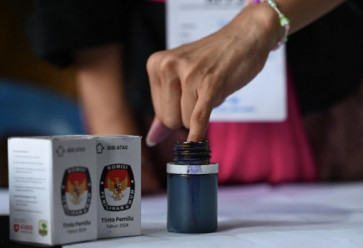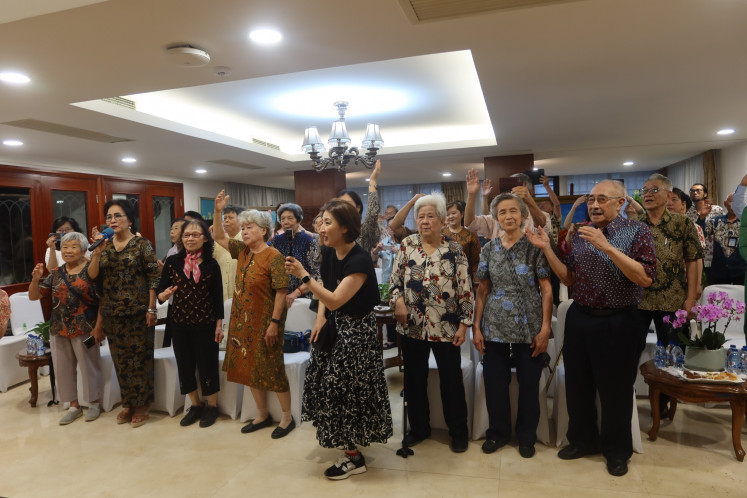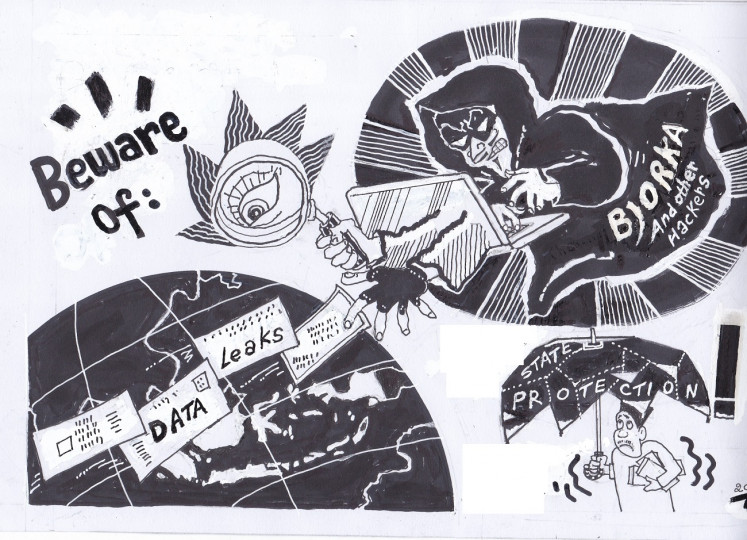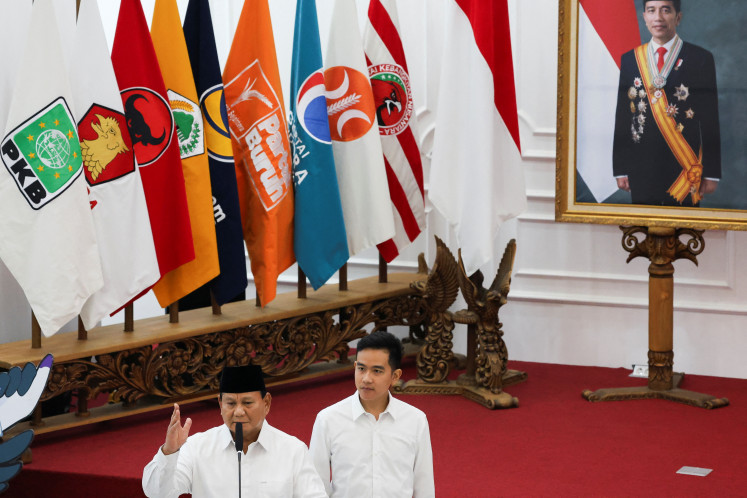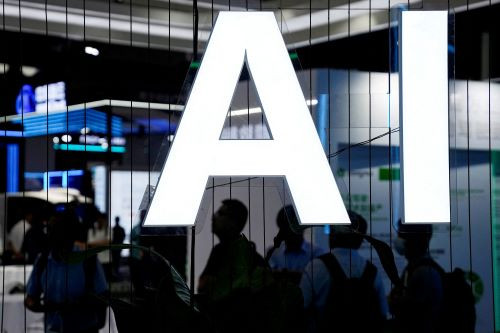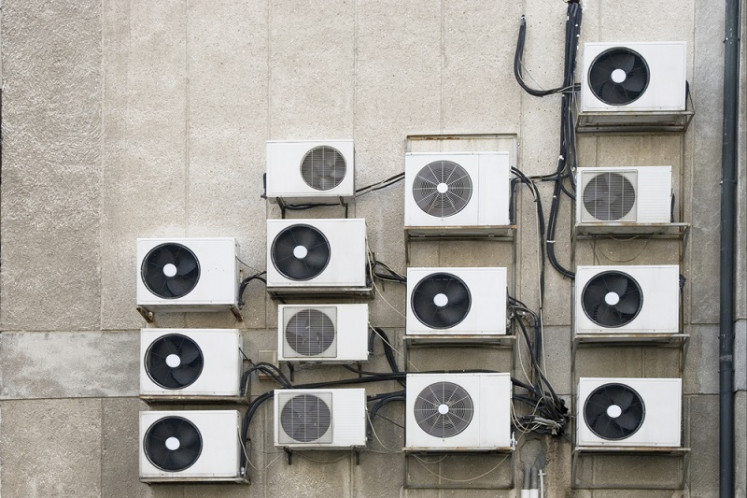Analysis: Rushed tests risk another delay for the Jakarta-Bandung HSR
PT Kereta Cepat Indonesia China (KCIC) and the government’s Aug. 18 promised operational date of the Jakarta-Bandung High-Speed Railway (HSR) is met with strong opposition from the Transportation Ministry’s review team, consisting of Mott MacDonald, PwC and Umbra law firm.
Change Size
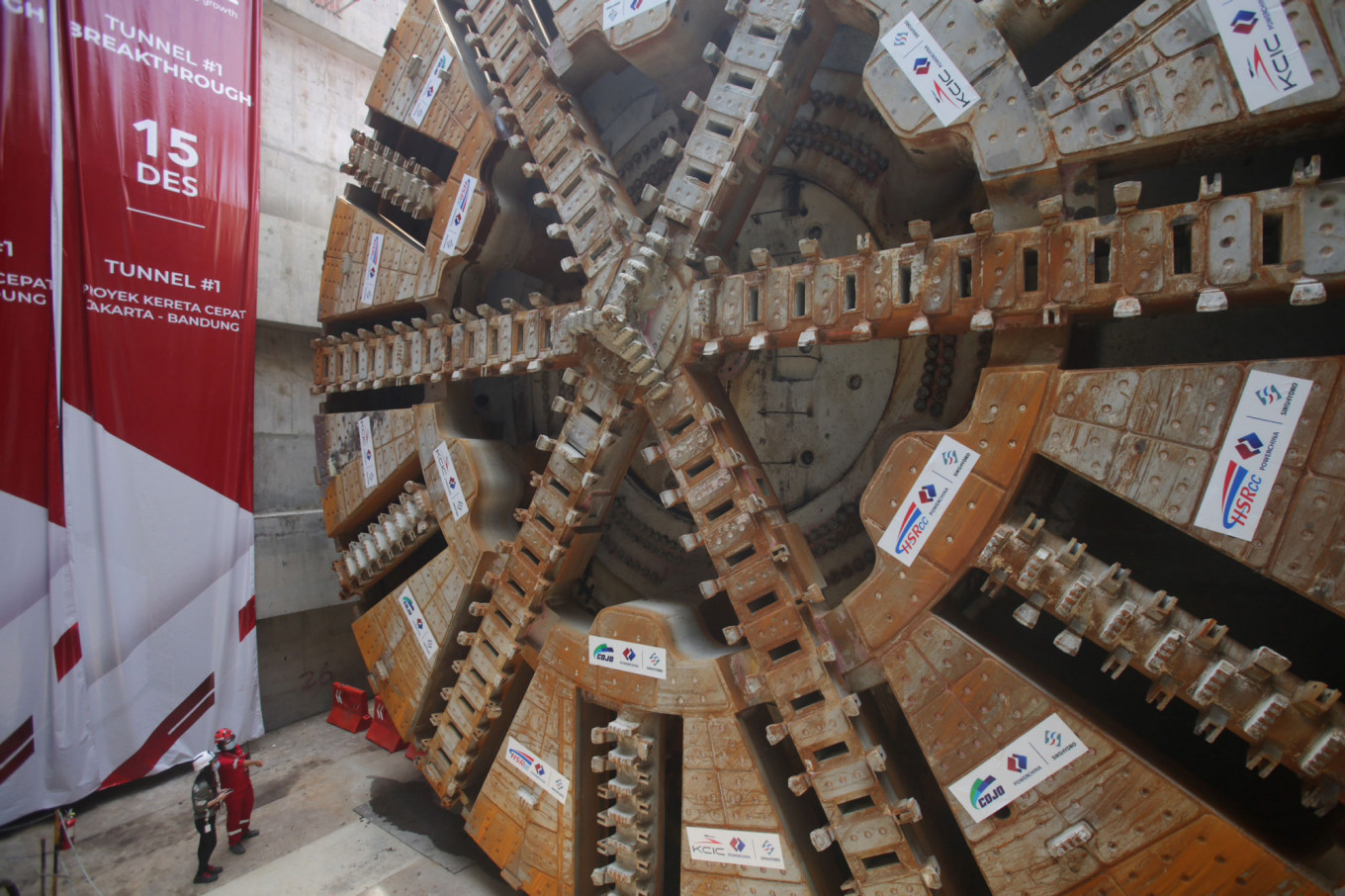 Officers check the condition of the Tunnel Boring Machine (TBM) for the Jakarta-Bandung Fast Train Project in Tunnel 1 in the Pondok Gede area, Bekasi DKI, Tuesday, 12/15/2020. The TBM machine has managed to penetrate the tunnel 1 tunnel structure along the 1.8 KM transverse under the Jakarta-Cikampek toll road. (JP/Wendra Ajistyatama)
Officers check the condition of the Tunnel Boring Machine (TBM) for the Jakarta-Bandung Fast Train Project in Tunnel 1 in the Pondok Gede area, Bekasi DKI, Tuesday, 12/15/2020. The TBM machine has managed to penetrate the tunnel 1 tunnel structure along the 1.8 KM transverse under the Jakarta-Cikampek toll road. (JP/Wendra Ajistyatama)
P
T Kereta Cepat Indonesia China (KCIC) and the government’s Aug. 18 promised operational date of the Jakarta-Bandung High-Speed Railway (HSR) is met with strong opposition from the Transportation Ministry’s review team, consisting of Mott MacDonald, PwC and Umbra law firm. The ministry and consultants cite serious issues ranging from the construction of Padalarang station being behind schedule, financial issues and a rushed testing period as chief concerns among them.
Starting from the hot sliding tests performed last month, KCIC has a total of three months before the railway is opened to the public in August. This has raised safety concerns from industry experts because the normal expected length for train trial periods is over six months.
Moreover, KCIC still has not been transparent with how it plans to meet its deadline, as it still has not revealed anything about its master schedule. KCIC representatives have guaranteed that Padalarang station will be complete on time, even though the station had only reached a progress rate of 50.18 percent during its most recent inspection on May 14.
Transportation Minister Budi Karya and his review team suggested the operational date of the Jakarta-Bandung HSR be moved as far back as January 2024. The construction of Padalarang station alone is unlikely to finish until at least late December this year, meanwhile there remains a long testing period before the ministry can give the HSR the feasibility certifications necessary to start operations.
Many in the government are not keen on delaying the Jakarta-Bandung HSR any further. Even the most recent Aug. 18 promised date was actually delayed from an earlier mid-June estimate that was made at the start of the year. The new Aug. 18 date is also appealing because it would coincide with celebrations for Indonesia’s 78th Independence Day.
Coordinating Maritime Affairs and Investment Minister Luhut Binsar Pandjaitan, one of the parties who initially coined the Aug. 18 date, clarified his statement in an interview last Friday. The HSR would not be fully operational on Aug. 18, he said, rather, the trains would only serve a limited number of passengers for free on that day, while the full operational date of the HSR is still to be determined.
Along with the full operational date, the ticket fares for the HSR are still undecided. KCIC is currently working with the University of Indonesia’s Center for Testing, Measurement, Observation,and Modelling (POLAR UI) to develop the fares. However, a general manager at KCIC has revealed that the fare may be comparable to existing executive class trains traveling the same routes. An example that can be used as a benchmark could be the Argo Parahyangan (GOPAR) train, which charges up to Rp 200,000 (US$13) for the executive seats in the Jakarta-Bandung route.
What’s more
Another issue for the Jakarta-Bandung HSR is that KCIC is bearing the brunt of financial troubles faced by PT Wijaya Karya (WIKA), a member of the Indonesian consortium that makes up KCIC. Faced with hefty interest burdens from accrued debts, the state-owned-enterprise (SOE) is in the midst of a debt restructuring. The risk of lending money to a project where WIKA has a hand in managing finances, specifically for procuring bolts, in the case of the HSR, has deterred banks from providing capital to the project. Additionally, some accounts for the HSR have actually been frozen by the banks.
To help put things into perspective, HSR’s short-term liabilities is estimated to be around US$381.75 million. However, this is only a part of the project’s cost overrun, which was agreed by the Indonesia and China consortium to be around US$1.2 billion.
KCIC plans to pay off a large part of the cost overrun through loans from the China Development Bank (CDB), however they are in the midst of negotiating the interest rate for the loan. Indonesia is asking for an interest rate of 2.8 percent, meanwhile the CDB wants an interest rate of 3.4 percent for the loan.
What we’ve heard
A source at the Transportation Ministry said the Jakarta-Bandung high-speed railway had still not received its feasibility certification and was unlikely to receive it before the August commercial start date. Testing for the feasibility certificate was being held back by the fact that some facilities had not been completed.
Several parts of the route are still under construction. One of them is Padalarang Station, which is just over 50 percent complete. The issue is that Padalarang Station serves as a hub for passenger transfers to the city of Bandung, which makes it crucial for the railway.
Furthermore, a comprehensive test would also be much easier to conduct if all the infrastructure and facilities were completed. Testing must be done on all aspects of the HSR, ranging from the tracks to the electrical, signaling, operational and communication systems. The endurance and fitness of the constructed bridges, tunnels, stations and train units will also be tested for the certification.
Moreover, many of these tests need to be conducted multiple times to account for various scenarios, which would take more than just three months. One of the most time-consuming tests is the track testing, which typically takes at least six months by itself.
That's why discussions are being held on delaying the commercial operation of the HSR past the promised August date. A study conducted by three foreign consultants hired by the Transportation Ministry has even suggested pushing back the target for commercial operation to early 2024, citing serious safety risks.
For these reasons, Coordinating Investment and Maritime Affairs Minister Luhut Pandjaitan has softened his stance. Although he is still determined to hold a limited operational demonstration on Aug. 18 of this year, the Jakarta-Bandung HSR will not be fully operational at that time.
Disclaimer
This content is provided by Tenggara Strategics in collaboration with The Jakarta Post to serve the latest comprehensive and reliable analysis on Indonesia’s political and business landscape. Access the latest edition of Tenggara Backgrounder to read the articles listed below:
Politics
- Coalition for Change heading for the rocks
- Ukraine peace plan sheds light on Prabowo's foreign policy thinking
- KPU to remove campaign donations report
- Activists' defamation trial a blow to free speech
Business and Economy
- BPKP to investigate WIKA over financial statement manipulation
- GoTo gets boost from appointment of CEO, chief commissioner
- RI bans bauxite exports as US implements IRA



